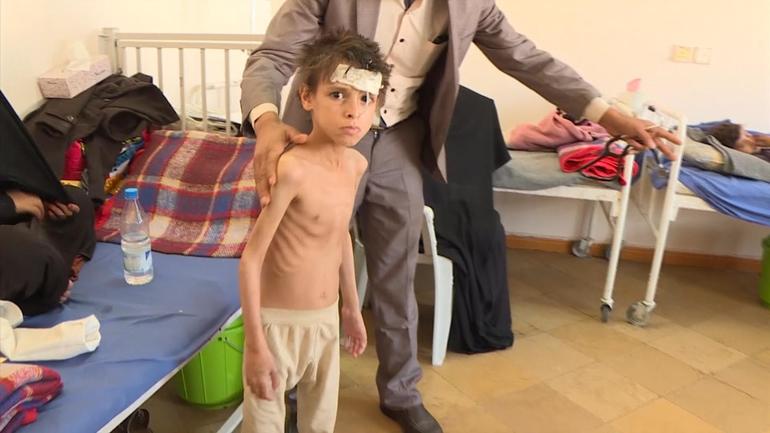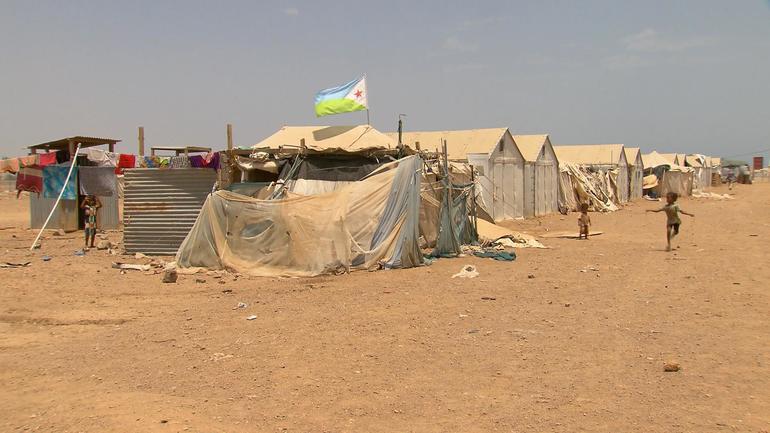It's The Arab Culture
"It's not about us -- we have no power to stop this war. Even if the international community ... provides millions of dollars, Yemen will not recover unless the war stops."
"It's so painful to see hopeless families. I've met some who are all infected with cholera or other diseases. Can you imagine a father, whose eight children who are infected and he is so poor?"
"People are very pessimistic. I think we will be neglected slowly by the international community and the world."
Sadeq Al-Ameen, aid worker, Sanaa, Yemen
"We're looking for this simple, over-arching narrative and this idea of a proxy war is something people can understand -- group X backs these guys and group Y backs these guys."
"The reality is you've got a multiplicity of different groups, each with different agendas working and fighting on the ground against one another."
"They've gone from literally 25 guys in the mountains 13 years ago to thousands if not tens of thousands of men operating on the ground in control of all these resources. They're being told, you're on the back foot and it's time to give up, which to my mind if you look at their history, their trajectory, it just doesn't compute."
"Lots of different groups control lots of different parts of the country and that control allows them to tax trade. We end up in this situation where it becomes self-fuelling, where guys who have taken up arms, maybe for ideological reasons, maybe for local politics, now have money and power they didn't have before the war ... They're not being talked to, so what incentive do they have to give up their arms and newfound resources and power?
"The lesson the Saudis have learned is that they can get away with a great deal when it comes to Yemen. They can really do things that if another country were doing it in another context there would be international outcry, there would be action at the Security Council level, but in this case that's just not happening because of the value western and other states place on their relationship with Saudi Arabia."
Peter Salisbury, Chatham House paper author
"I do think Syria has exhausted resources, personal and governmental. I'm not surprised given the extent of the war there."
"But I also think if Yemen preceded Syria, nothing would change. Yemen is jut not a country that western nations and peoples think of -- hardly on their radar."
Kamal Al-Solaylee, Yemen born, Toronto author, professor
 |
| A child in Yemen CBS News |
The war in Yemen is indeed a proxy war between Saudi Arabia and the Islamic Republic of Iran, one an Arab state the other Aryan, both Muslim-majority countries, the former Sunni, the latter Shiite. Saudi Arabia views itself as a leading power in the Middle East, not least because it is the custodian of the two most sacred sites in Islam, Mecca and Medina. The challenge by Iran which imagines itself once again reflecting influence and power from the historical era of the Persian Empire threatens the eminence of the Saudi majority in the Middle East -- and world wide which consider Shia Islam illegitimate.
Since 1979 and the transformation of Persian Iran into the Islamic Republic it is now, modernity and moderation have taken a back seat to the fundamentalist Ayatollahs' mission to assume the mantle of the Middle East power and influence, to bring Shia Islam to the fore and to achieve that goal it has gone out of its way to form, train and arm Shiite militias, to support what are undeniably terrorist groups, to launch terrorist attacks against perceived enemies both in the Middle East and abroad while enlarging its sphere of influence.
Iran's mission to arm its military with medium- and long-range ballistic missiles, its steady work toward manufacturing nuclear bombs and its overt hostility toward the majority Arab Sunni community hugely alarms that community, no less than it does the only other non-Arab state in the Middle East, Israel. The threats emanating from Iran toward Israel, to wipe it from the map of the Middle East are overt, while the threats against the Sunni states are covert and implied, but no less real.
The Yemeni Houthi rebels practise a brand of Shia Islam linking them to Iran, which has encouraged the Houthis to overwhelm the Western- and Saudi-approved Abd-Rabbu Mansour Hadi who took the helm of Yemen after the Arab spring 2011 protests rid the country of Ali Abdullah Saleh, an autocratic ruler not beloved by his people, similar to what had occurred in Tunisia. But the Houthis aligned themselves with Saleh, attacking the capital and wresting it from the Hadi government.
The rise of the Houthis as a rebel group with a fierce fighting reputation is similar in type to that of the Islamic State of Iraq and the Levant; while one is Shiite, the other Sunni, each was a persecuted minority in their countries ruled by a sectarian majority. Saudi Arabia gathered a coalition of Sunni states to launch a war against the Houthis to return their candidate to power though it is mostly Saudis bombing Yemen to achieve that end. And more refugees are added to the world total, an amazing number of which are of Arab origin.
 |
| Yemeni refugees in a Djbouti refugee camp CBS News |
As long as it is sectarian Islam in conflict with itself the 57-member states of the Organization of Islamic Cooperation will do nothing, say nothing, fail to apply pressure on either Iran or Saudi Arabia to cease and desist and allow Yemen to save itself from even greater destabilization if such a thing is even remotely possible. This is the Arab and Muslim world, after all. It is not only the Houthis who are in conflict against their sectarian rivals in Yemen, for al-Qaeda and Islamic State have also positioned themselves there, all jostling to achieve their own goals.
Labels: Conflict, Houthis, Iran, Saudi Arabia, Shiite, Sunnis, Yemen
0 Comments:
Post a Comment
<< Home